Revamped technology syllabus will see teens learn skills for future jobs
From electric cars and robotics to digital devices and automated gardening systems, Year 7 and 8 students will learn to create cutting-edge technology in a bid to raise the next generation of tech moguls, The Sunday Telegraph can reveal.
From electric cars and robotics to digital devices and automated gardening systems, Year 7 and 8 students will learn to create cutting-edge technology in a bid to raise the next generation of tech moguls.
As part of a revamped technology syllabus to be announced by the state government today, students in their first two years of high school will be required to use science, technology, engineering and mathematics skills to solve “real-world problems”.
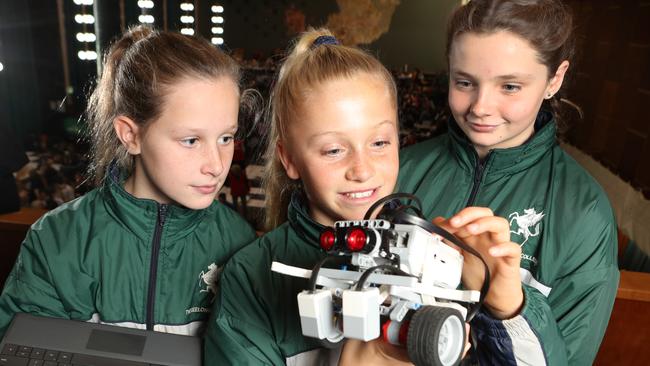

They will be expected to tackle projects such as coding wearable digital fitness trackers, building vehicles powered by renewable energy or designing fully automated home watering systems, while also taking into account commercial considerations such as production costs and environmental and economic sustainability.
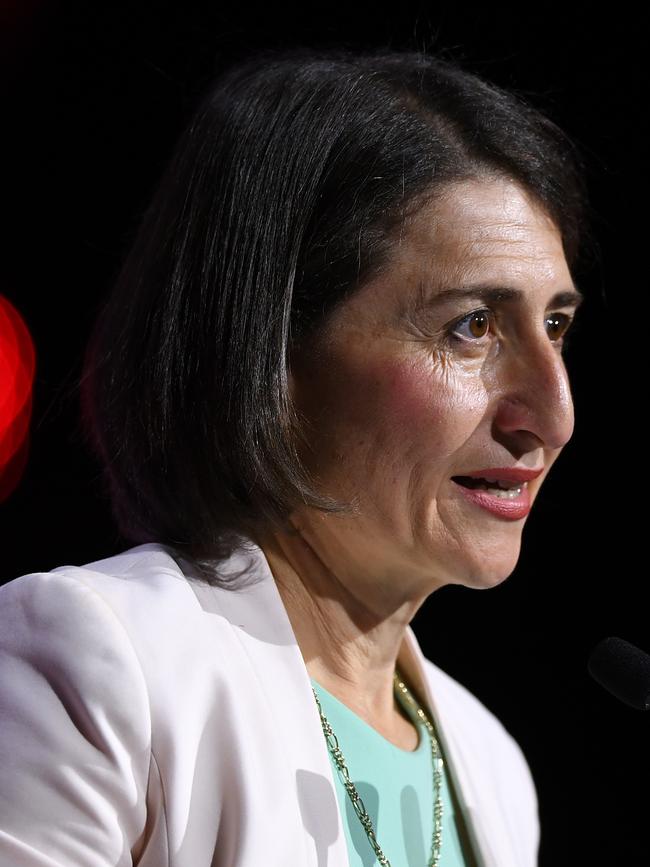
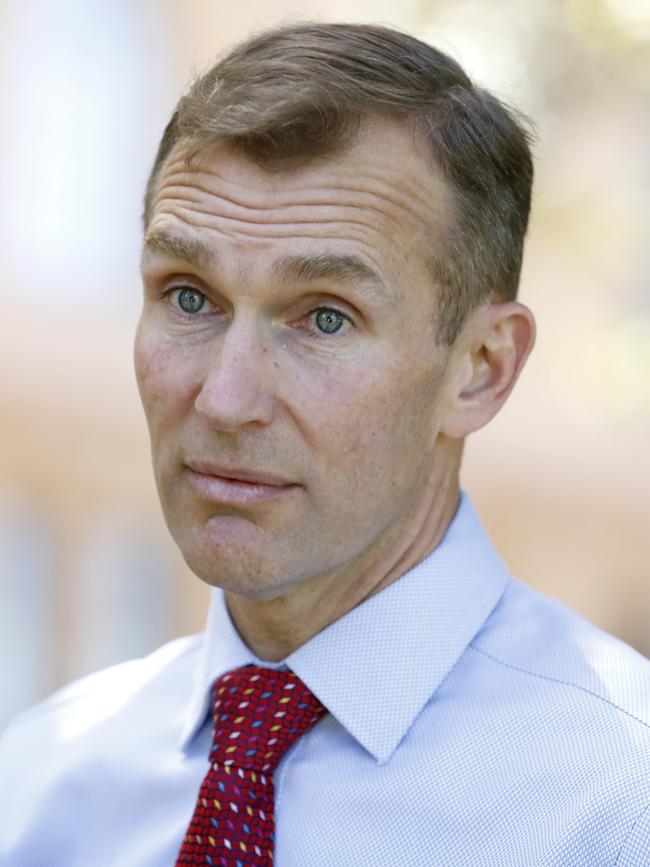
MORE FROM JACK MORPHET
AUSTRALIA DAY HEAT TAKES ITS TOLL ON REVELLERS
FIRST LOOK: MOPEDS TO MAKE PARCEL DELIVERIES
WHY TEMPS WILL RISE MORE IN SYDNEY’S WEST
Coming into effect when school resumes this week, Premier Gladys Berejiklian said teaching students to design products, build prototypes, learn coding and use software would equip them with “the skills required for the jobs of the future”.
“The primary purpose of school is to prepare students to succeed in life,” Ms Berejiklian said. “What better way to do this than to teach students how to apply technology so they can find their own answers to complex problems and create new possibilities.
“I want to encourage more opportunities for students to learn job skills and trades while they’re at high school. We desperately need more carpenters and construction workers because of our massive infrastructure spending across the board.
“The future of robotics means we also need to train students in trades of a different kind.”
Education Minister Rob Stokes said workers of the future will need to take an integrated approach to education.
“In the information age we can no longer silo subjects,” he said. “For students to succeed in the future they will need to master the space where science, technology, engineering, mathematics and economics converge.”
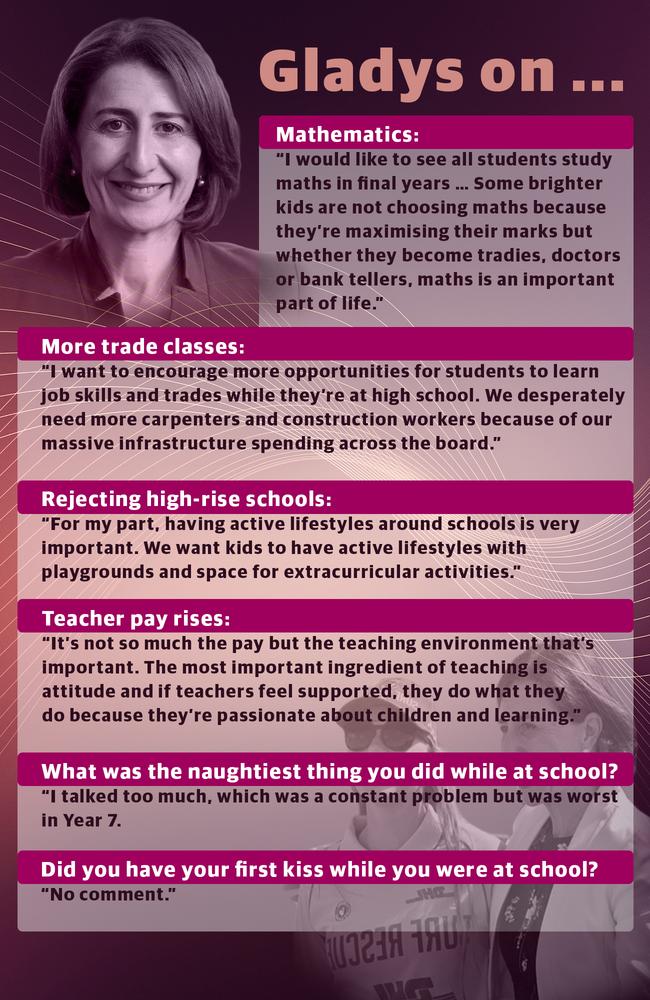
Ms Berejiklian also wants to end the slide in the number of students studying high-level maths and science subjects.
Mandatory HSC maths and science were scrapped in 2001, and while Ms Berejiklian is reluctant to force students to study STEM subjects, she hopes the “back-to-basics” review of the entire curriculum will entice more students to sign up.
“I would like to see all students study maths in their final years,” she said. “I am especially passionate about encouraging all students to study mathematics in [the] HSC, to develop life skills, no matter where their careers or jobs take them, and be better prepared for the digital age.
“I am hoping the curriculum review will support my stance.
“Some brighter kids are not choosing maths because they’re maximising their marks. But whether they become tradies, doctors or bank tellers, maths is an important part of life.
“This is all part of the review — I want to focus on good grounding in basics.”
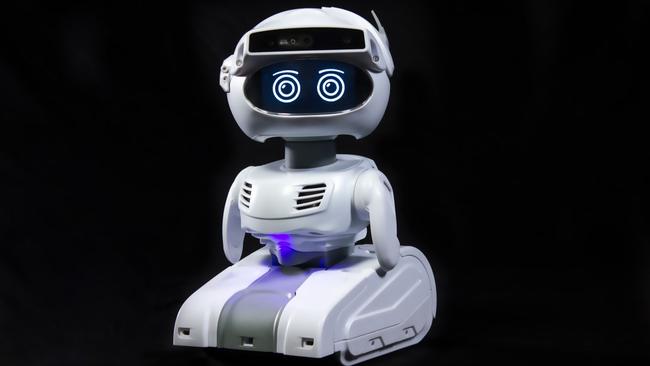
Enrolment figures from Sydney University show this year’s intake wasn’t put off by new rules requiring anyone studying economics, engineering or science degrees to have studied high-level maths at school.
“For courses that now require the maths prerequisites, we saw a very positive 8 per cent growth in school leavers choosing us as their first preference for study,” a university spokeswoman said.



